Welcome To SSI
Here at S.S.I.(Student Services International) we want to offer the best resources for new and prospective students. We offer private and group language classes in Osaka, Japan (English, Japanese, and Chinese). We also offer assistance for students wanting to study abroad. We will help you with all necessary aspects for your relocation abroad (School, Visa, and Housing).
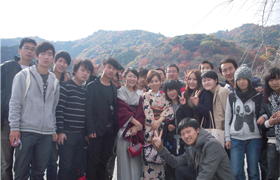

A Summer, a Semester, or a Year?
This seems to be a pretty big debate when students are considering studying abroad. While you may think a year seems like a long time to be abroad, a semester or summer term can be too short. In addition, most universities in Europe don't begin the school year until late September, affording you only three months to get acclimated, travel, and still get your work done before you're heading back home.
I found that the longer I was abroad, the greater the academic, cultural and personal benefits I gained. By living in another country for nine to ten months as opposed to three or four, I believe you will become more involved in the local scene and get a better feel for the knowledge of the culture.
A Semester or Summer Term Abroad
There are some positives to studying abroad for a semester or summer term. First, the shorter duration means less expense. You will only need to budget for three or four months abroad, while students studying abroad for a year have to take your budget and stretch it out for another four to five months.
You will also be more apt to take advantage of opportunities much quicker than year abroad students. I had nine months in Scotland, so I tended to put things off because I knew I could do them at a later date. I actually delayed going to see certain places and doing certain things so long that my last week was a bit of a rush.
A semester or summer abroad is also a good option if you’re excited about studying abroad, but not really sure if you can handle a whole year away from home. It’s a great way to get your feet wet, and I’d be surprised if you didn’t embark on another study abroad adventure after getting your first taste of the world outside the U.S.
A Year Abroad
Studying abroad for a year is a great option if you have the time and the budget. In my experience, I’ve realized that it takes almost three months simply to adjust to a new school, and if you’re only there for a semester or summer, you will be gone just as you’re getting comfortable.
You will also have twice the time to travel, including a lengthy inter-semester break. While you may have to be more frugal so you can make your money last, you'll still be able to visit more places than if you were only abroad for a summer or semester. You’ll also be able to spend more time around your abroad university and experience the weekend life every now and then, instead of having to use every Saturday and Sunday for traveling.
Studying abroad for a year allows you to have more time to be with your friends too. You'll undoubtedly meet a lot of new people in your first few weeks abroad, and you'll be able to develop those friendships over the course of an entire academic year instead of a span of a few months. Plus, if you’re interested in earning some money while studying abroad and gaining professional experience, finding a part-time job or internship could be more meaningful if you’re able to work for an entire year abroad. Employers are much more likely to hire you when they know they won't lose you a few weeks after training you.
Being away from home for nine to ten months versus three to four months will also require you to become much more independent. Knowing that you aren’t going home in three short months, studying abroad for a year allows you to have more time to strengthen the life skills and begin applying them to your everyday life.
Where Do You Want to Study Abroad?
There’s a variety of factors that can impact where you want to study abroad. One of the most obvious will be whether or not your home institution has a set list of approved schools to which they send students.
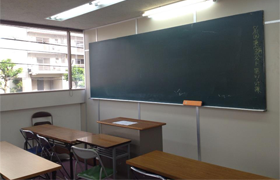

Here’s a list of other things you may want to consider:
Type of Program
Does your school have the type of program you are looking for? Is there a possibility you might have to go through an independent program? Are you comfortable participating in a program where you won’t know any other students? Which programs can you afford? How will you finance the cost of the study abroad program?
Major Requirements
Will you be able to complete any major requirements while abroad? Will your degree progress suffer if you can’t? Will your credits transfer either way?
Weather
This one’s pretty easy. What type of climate do you want to live in? If your idea of being abroad is on a beach under palm trees, then Moscow probably isn’t for you.
Studying abroad and living in a dorm
In a dorm, you are more likely to interact with people your own age, who are going through the same adjustments you’re going through, and who can relate with you on a greater level. In most dorms, there’s no curfew, and living in a dorm requires you to be much more independent.

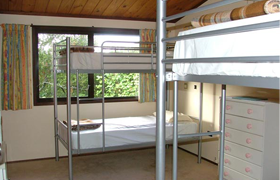
Studying abroad and living with a host family
If you’re studying a language, living with a host family will vastly increase the amount of interactive situations in which you’ll speak that language. There’s also a greater possibility that you’ll experience more local culture first-hand.
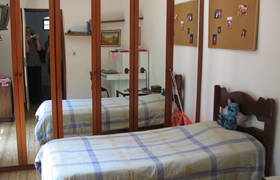
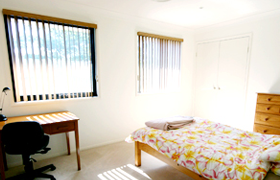
Local Life
Do you want to study abroad in a big city or small town? What is the campus like? Are there any famous landmarks, sights or tourist attractions close by that you'd like to visit? How's the night life? What is there to do when you’re not in class?


Travel
How close will you be to an airport? Are there low cost airlines flying out of those airports? Do you want to visit nearby countries/cities in your free time? If so, are you close to countries/cities you want to visit? How long will it take you to travel to different locations?


Food
Do you like the food common to that country? Can you get by on peanut butter and jelly sandwiches? While this shouldn’t be the deciding factor, I would go somewhere where you can appreciate local cuisine as it’s definitely a big part of the overall immersion experience.
Talk to people from your school or just people that you know that have been there before and ask their opinion. They’ll probably be very happy to share their experience.
The most important thing is to go with your gut feeling. If there’s a place that you’ve wanted to go since you were nine years old, then go. Do the research needed to be sure you know what you’re getting into so you can be as prepared and confident as possible when making your decision.






